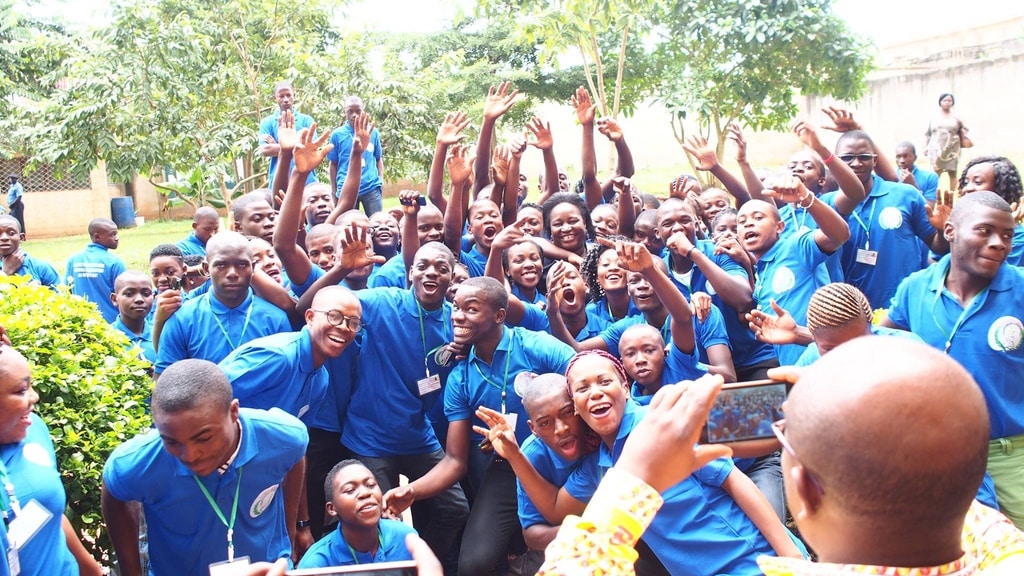In Cameroon, the Agence du service civique national de participation au développement (ASCNDP) has just completed the training of 1,500 volunteers in the Littoral region. Over a period of several weeks, the “young conscripts”, as they are known, have been trained in the national emblems and the promotion of peace. But what sets them apart from previous cohorts is their introduction to the Sustainable Development Goals (SDGs).
Candidates from the towns of Douala (Wouri division), Édéa (Sanaga-Maritime), Nkongsamba (Moungo) and Yabassi (Nkam) were taught about SDGs 6, 14 and 15 on water and sanitation, the preservation of terrestrial biodiversity and the protection of aquatic environments respectively. For educational coordinator Isaac Oscar Ndjock, this will enable these pupils and students to become ambassadors for the environmental cause in the schools they attend on a daily basis.
For example, they will be alerting their fellow pupils to the use of plastic and wastage of water in toilets, and promoting walking. These are all environmentally-friendly actions that should help to reduce CO2 emissions in the region, where a number of companies, including brewing and food multinationals, have their headquarters.
Read also-AFRICA: between climate hazards and ecological solutions, women at the heart of SDGs
The ASCNDP initiative, which has targeted 1,000 young people in the 10 regions of Cameroon in 2022, aims to promote the concept of “useful holidays” adopted by several organisations as part of their eco-responsible strategies. This is the case of the Société anonyme des brasseries du Cameroun (SABC), which each year mobilises 100 young people in Yaoundé and Douala to collect and recycle plastic waste into kitchen utensils and building tiles. The brewer packages its soft drinks in PET (polyethylene terephthalate) bottles. A material that causes pollution in large cities.
Benoit-Ivan Wansi
